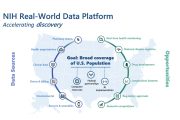
The American Journal of Obstetrics & Gynecology (AJOG) published online in September 2009 a pro-abortion article entitled: “An ethically justified practical approach to offering, recommending, performing, and referring for induced abortion and feticide.”
Written by Frank A. Chervenak, M.D., and Laurence B. McCullough, Ph.D., and featured in the December 2009 print edition of the journal, the article basically justifies abortion by purporting that “the fetus lacks the capacity to generate a perspective on its interests” due to “the immaturity of the fetal central nervous system.”
This is important, so the authors say, because if the fetus isn’t aware of his own interests, he has no claim to any rights. “The ethical principle of respect for autonomy and the concept of autonomy-based rights therefore do not apply to the fetus,” the authors declare.
Chervenak and McCullough see this point of view as simplifying the whole abortion debate “because it prevents ethical analysis of induced abortion and feticide in medical ethics from being paralyzed by divisive debates about a fetal right to life that have been going on for decades, indeed centuries, without any basis for resolution.” They state, “The ethical concept of the fetus as a patient does not require appeal to the discourse of fetal rights.”
Thus the article quickly disregards that all-important line from the Declaration of Independence: “We hold these truths to be self-evident, that all men are created equal, that they are endowed by their Creator with certain unalienable Rights, that among these are Life, Liberty and the pursuit of Happiness.” Note that the Declaration did not say “born equal,” but “created equal.” There can be no dispute that the creation of a unique human life occurs at the moment when an egg is fertilized, not at the moment of birth. Thus human rights begin even in the womb.
Apparently the AJOG editorial staff agrees with the article’s dismissal of what should be “unalienable Rights” or they would not have published the article. The editors did not balk even when the article went on to say: “Beneficence-based obligations to the fetus exist when the fetus is reliably expected later to achieve moral status as a child and person. The clinical application of the ethical concept of the fetus as a patient therefore depends on links that can be established between the fetus and its later achieving such moral status.”
The article clarifies what is meant here after defining fetal viability as occurring at “approximately 24 weeks of gestational age.” The authors state, “The previable fetus has no claim to the status of being a patient independently of the pregnant woman’s autonomy. The link, therefore, between a previable fetus and the child and person it can later become can be established only by the pregnant woman’s decision to confer the status of being a patient.”
This is another was of saying that the pregnant woman is free to have an abortion until such time as her baby is able to survive outside the womb. Chervenak and McCullough even rightly recognize that “it is ethically impermissible to offer feticide for viable fetuses without anomalies or with less-than-severe anomalies, such as Down syndrome or achondroplasia.”
Tragically, after claiming that the woman’s choice overrides the right to life of the previable fetus, the authors then add: “When a viable fetus has a severe anomaly, offering feticide followed by termination of pregnancy is ethically appropriate…. This means that there is an autonomy-based justification for offering feticide followed by termination of pregnancy in a viable pregnancy with a severe anomaly.”
So it is that Chervenak and McCullough only see abortion as unethical if the child has been in the womb for six months to achieve viability and is reasonably healthy. Before six months and at any time the baby shows a serious “anomaly,” the pregnancy can be terminated by the mother’s choice. They even state, “Laws prohibiting partial-birth abortion represent an ethically unjustified intrusion into professional medical practice,” thus indicating their approval of even this barbaric abortion/infanticide procedure as being justified to prevent a child with an “anomaly” from being fully born.
LifeSiteNews.com reported on December 22 how Reverend Tadeusz Pacholczyk, Ph.D., the director of Education at the National Catholic Bioethics Center, responded to the AJOG article. Pacholczyk said, “Chervenak, McCullough, and other academicians of their stripe really ought to learn to pick on those their own size, rather than leveraging their age and educational advantage to mount unjust attacks against those younger and not-yet-educated human beings still in the womb.”
"Human fetuses or newborns do not need to be able to balance a checkbook or have a nervous system before we will ‘grant them moral status,’ since their moral status and dignity doesn’t depend on us granting it in the first place," Pacholczyk stated. "Only the most pride-filled academician could ever suppose that he had the ability to grant moral status to a fellow human being who happens to be very young."
Photo: AP Images




